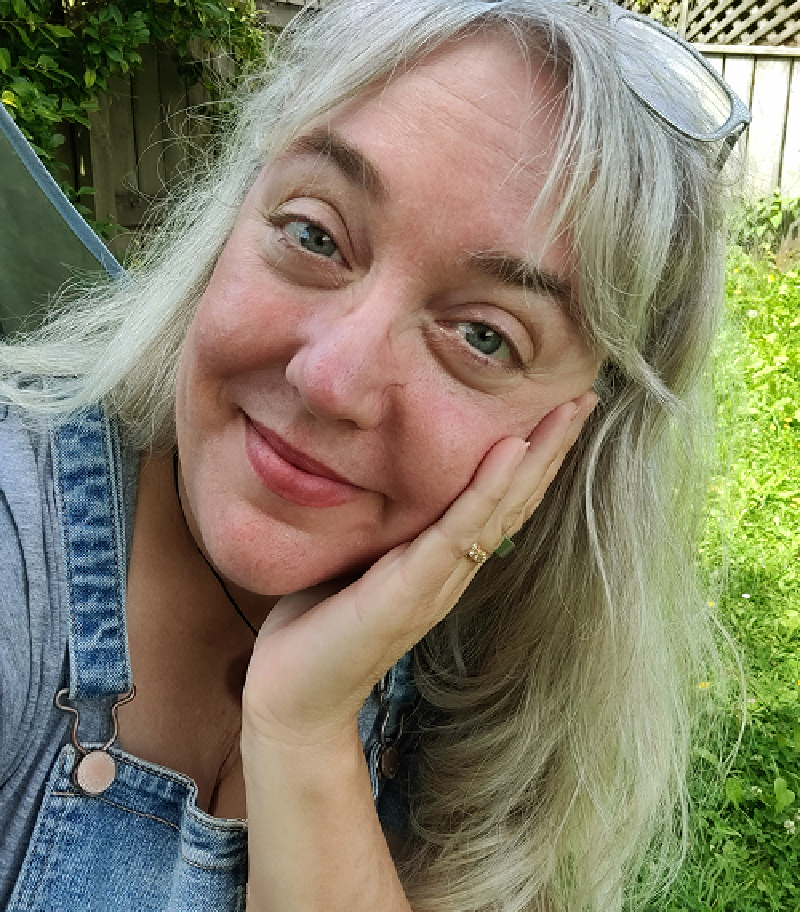Author Rachael Herron has drafted a dozen of her novels during NaNoWriMo, and knows a lot about navigating the twists and turns of a month-long writing adventure. I called her in New Zealand to get her tips for surviving and thriving in the second week of the challenge.
Okay, so we’re almost at Week Two. What challenges do you usually encounter at this point?
In the beginning there’s this enthusiasm and fire because it’s all brand new. The oxytocin and first-love honeymoon phase can get you through those first seven days no problem. It’s in Week Two that you start to get a little bit tired. The dopamine has worn off and the perfectionist wakes up and goes “Wait a minute! I’m here! I could definitely help you do this better.” In Week Two, I start to hear, “This is not the right book.”
Oooh, I’m hearing that voice right now.
It’s all a beautiful, benevolent lie. Our brains have one function in life: to keep us safe. And the thing they know is safe is whatever we were doing last week, because we lived through it. If we were watching Netflix on the couch, that’s what it thinks is safe. It’s saying “Let’s go back to that. What you’re doing right now with this novel feels dangerous.”
Even after all the books you’ve written, that perfectionist still pipes up?
100%. The further we go down the track, and whether that is in your career or in the days of the month of November, it gets easier to ignore the voice. The problem I see some people have is that they try to argue with the voice.
Why not argue?
My inner critic is smarter than I am. And so if I argue with it, I will defeat it at first. But it comes back 15 minutes later with an even better argument. The best thing I’ve ever found to do with that inner critic is to cheesily thank it. I say “You are trying to keep me safe, and we can absolutely discuss this after I get my 1,667 words done today.” When I’m done writing for the day, the voice is always gone.
Take that, inner critic! What other Week Two strategies do you use?
For me, it often comes down to Post-its. I worship at the Church of 3M. And if the voice is too loud and I can’t just, you know, politely tell it to go away, I will write its concern down on a post-it and say we’ll talk about it later. Then I stab it on a waitress spike. And it blows away again. In NaNo, I think we owe it to ourselves to continually be trying to unearth the joy. So when I’m fast drafting, I like to remember that I do not have to write the hard parts.
Wait, what?
As soon as I get to a part that’s hard, I like to write myself a little post-it or just write all in caps in the document something like, “This is really hard, Rachael.” Then I skip it, knowing I’ll fix it later.
You’re allowed to do that?
Yes! I leave every problem for future Rachel, who will be way smarter than me about this book, because she will have learned so much from writing all the subsequent chapters. I like to stop when it gets hard and skip to the next shiny, fun, or interesting chapter where I feel excited and I can get the words easily. If I’m not excited and I’m sucking mud, I’m gooing to get stuck at 100 words.
How often do you find that those hard parts that you leave for later don’t even show up in the final draft?
Almost all the time. But if you asked me in the moment, I would tell you with 100% assuredness that that scene I’m skipping is totally pivotal to the book. And when I do go back to revise, if it stays in at all, it might just be one or two sentences instead of the 2000 words of angst. Future Rachael figured it out!
What do you do on the days when you’re just not feeling it?
Every day I wake up and I have zero interest or less than zero interest in getting any words on the page at all. And the more I do this job, the more I’ve learned that it is a simple matter of understanding that the feeling will go away if I just sit down and do a few minutes of work.
And the thing that is really worked for me the best in recent years, and this is great for a NaNo project too, is to tell yourself honestly, and this has to be honest, that on a day you don’t want to write, you will open your document and you will put in one word or you will take out one word. And that’s it. That’s all you have to do.
So you really just write one word?
I call it breaking the seal—adding that one word or taking out the word first thing in the morning. Because you come to a standstill overnight. And if you do it the very first thing in the morning, then it will be so much easier to get back to you later in the day during your normal writing time. Your brain isn’t scared anymore.
There have been a couple of days where I’ve only put in one word and then I’ve stopped. But on other days, the hardest part is just getting there and dealing with the emotional management to open the document and to take the deep breath and to look at it. And once you have emotionally managed yourself there, the world is your oyster.
Rachael Herron’s first very terrible (and therefore awesome) novel was completed during NaNoWriMo 2006. She’s now the USA Today bestselling author of more than two dozen books, including thrillers (under R.H. Herron), mainstream fiction, feminist romance, memoir, queer paranormal cozy, and nonfiction about writing (because ADHD). A dual New Zealand and American citizen, she lives in Wellington, New Zealand with her banjo-playing wife, brick-eating dog, and two cats who are as sweet and as dumb as candy corn. You can sign up for her email of encouragement for writers here.


